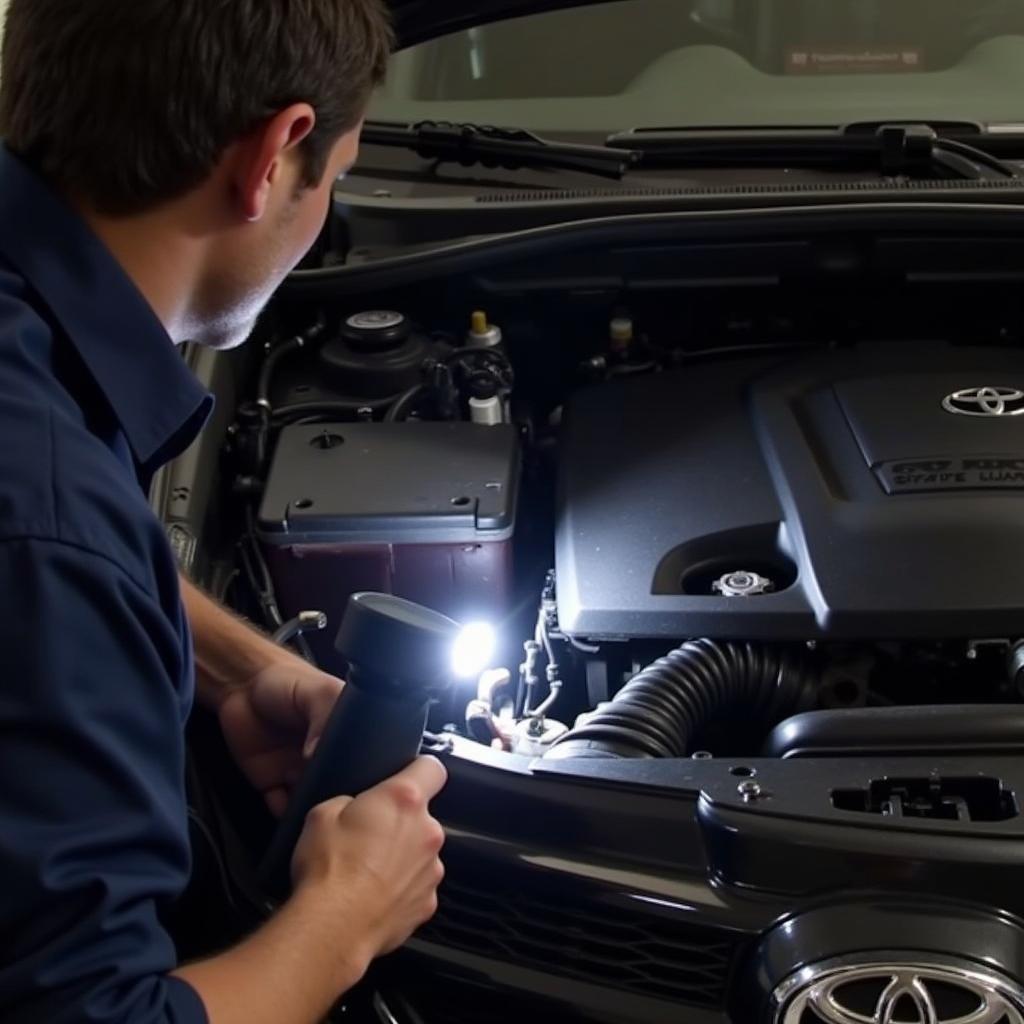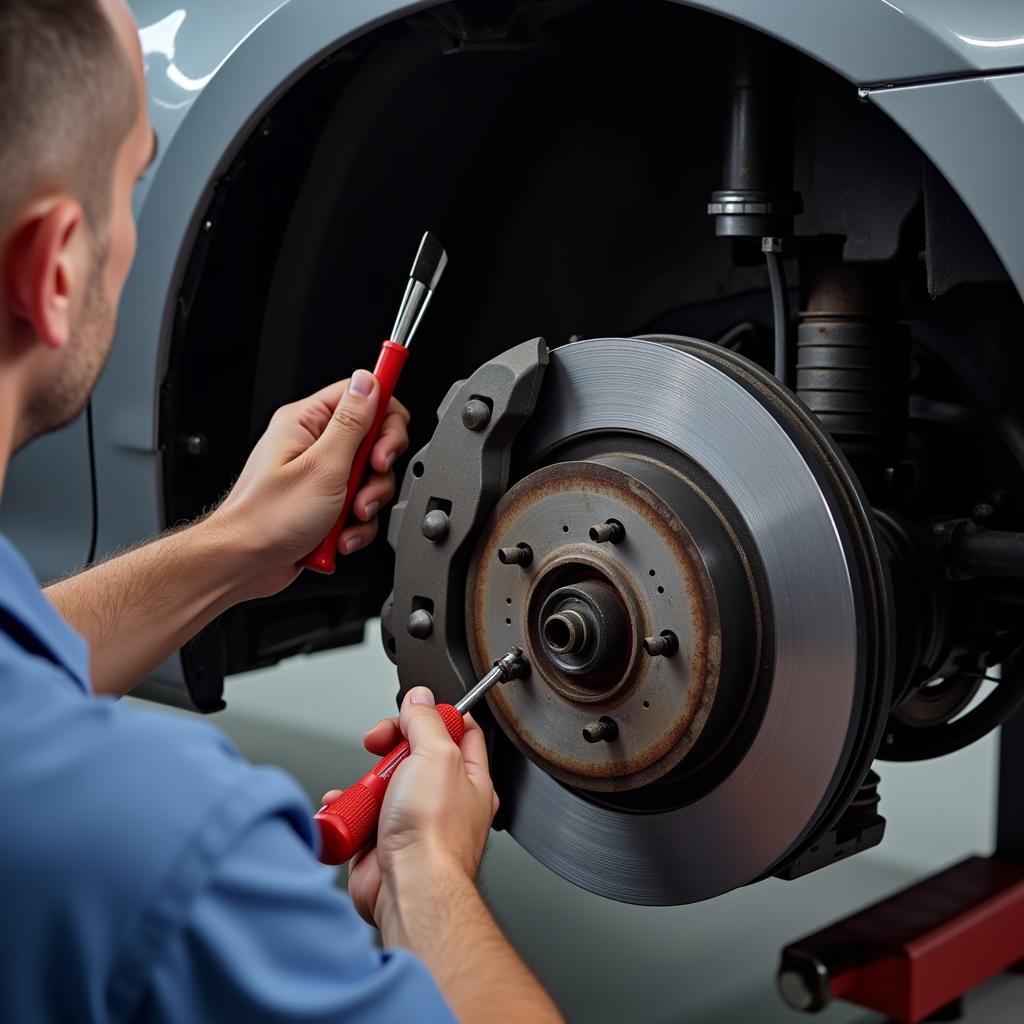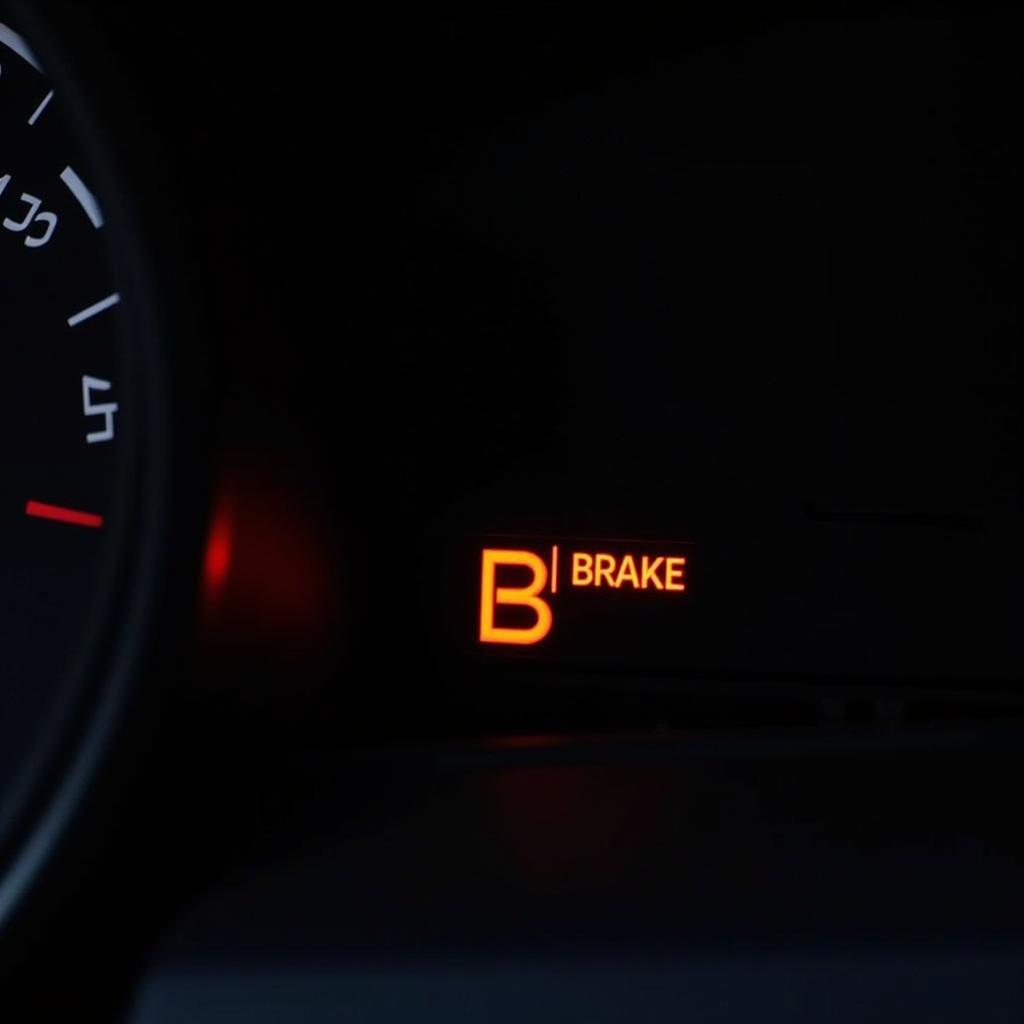If your brake warning light stays on in your Toyota Camry, it can be a concerning issue. This article will guide you through the potential causes and solutions for a persistent brake warning light, covering everything from simple checks to more complex diagnostic procedures. We’ll explore common reasons behind this problem, provide step-by-step troubleshooting advice, and discuss when professional help is necessary.
If you’re experiencing a parking brake issue, you can learn more about the toyota camry parking brake warning.
Understanding the Brake Warning Light
The brake warning light is an essential safety feature, alerting you to potential problems within your braking system. It can indicate several issues, ranging from low brake fluid to more serious problems like worn brake pads or a malfunctioning ABS system. Ignoring this light can lead to unsafe driving conditions and potentially costly repairs.
Common Causes of a Persistent Brake Warning Light
Low Brake Fluid
One of the most common reasons for a continuously illuminated brake warning light is low brake fluid. This can be caused by a leak in the brake lines, worn brake pads, or a faulty brake master cylinder.
Worn Brake Pads
Brake pads are designed to wear down over time. When they become too thin, the brake warning light will illuminate, signaling the need for replacement.
Faulty Brake Sensor
A malfunctioning brake sensor can also trigger the brake warning light. These sensors monitor the brake fluid level, brake pad thickness, and other critical components.
ABS System Issues
Problems with the Anti-lock Braking System (ABS) can also cause the warning light to stay on. This could be due to a faulty ABS module, wheel speed sensor, or other related components.
Troubleshooting the Brake Warning Light
Check the Brake Fluid Level
The first step is to check the brake fluid level in the reservoir. If it’s low, add brake fluid to the recommended level. Be sure to use the correct type of brake fluid for your Toyota Camry.
Inspect the Brake Pads
Visually inspect your brake pads for wear. If they appear thin or worn, they likely need replacement. You can also check for uneven wear which could indicate other issues.
Here’s a helpful resource if you have a 2001 Camry: 2001 camry brake light warning.
Check for Leaks
Inspect the brake lines and other components for any signs of leaks. Look for fluid puddles under the car or wet spots around the brake calipers and wheel cylinders.
Test the Brake Pedal
Pay attention to how the brake pedal feels. Does it feel spongy or go too low to the floor? This can indicate air in the brake lines or a problem with the master cylinder.
 Mechanic Checking Brake Fluid in a Toyota Camry
Mechanic Checking Brake Fluid in a Toyota Camry
Diagnostic Trouble Codes (DTCs)
If the basic checks don’t reveal the cause, you can use a diagnostic scanner to retrieve any stored Diagnostic Trouble Codes (DTCs). These codes can pinpoint the specific area of the braking system that’s malfunctioning.
When to Seek Professional Help
If you’re uncomfortable performing these checks or if you suspect a more serious issue, it’s always best to consult a qualified mechanic. They have the expertise and tools to diagnose and repair complex brake problems.
For issues with your brake light turning on and off intermittently, check out: brake warning light comes on then goes off.
Conclusion
A persistent brake warning light in your Toyota Camry should never be ignored. By following these troubleshooting steps, you can often identify the cause and take appropriate action. However, if the problem persists or if you’re unsure about any step, seek professional assistance to ensure your safety and prevent further damage to your vehicle’s braking system. Addressing this issue promptly can save you time, money, and potentially prevent a dangerous situation on the road.
 Mechanic Inspecting Brakes on a Toyota Camry
Mechanic Inspecting Brakes on a Toyota Camry
This article might be helpful for owners of a 2010 Camry: 2010 toyota camry brake warning light. Also, if you have a 2002 Camry and are experiencing dashboard warning lights, this resource could be useful: 2002 toyota camry brake dashboard warning lights.
FAQ
- What does it mean if my brake warning light flashes? A flashing brake warning light often indicates a serious issue with the ABS system.
- Can I drive my car with the brake warning light on? While it’s technically possible, it’s highly discouraged. Driving with a brake warning light on can be dangerous.
- How much does it cost to fix a brake warning light issue? The cost varies depending on the underlying cause and can range from a simple fluid top-up to more expensive repairs like replacing brake components.
- How often should I check my brake fluid level? It’s a good practice to check your brake fluid level at least once a month.
- Can worn brake pads cause a grinding noise? Yes, worn brake pads can cause a grinding or squealing noise when braking.
- What is the difference between the brake warning light and the ABS light? The brake warning light indicates a general issue with the braking system, while the ABS light specifically signals a problem with the Anti-lock Braking System.
- How long do brake pads typically last? Brake pad lifespan varies depending on driving habits and conditions, but they generally last between 25,000 and 70,000 miles.

